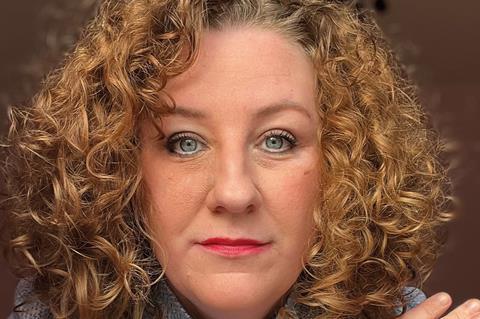Senior associate and head of employment and commercial disputes, Milton Keynes
I have always fought for what I believe in since I was a child. What is fair and what is not and standing up for those who found it difficult to have their voices heard. However, my route to law was not really planned. I had a passion for linguistics and was due to go to London to study this. However, in 1996, I deferred and then turned down my unconditional offer because I could not be guaranteed a room without shared facilities, which is what I required due to my disability.

I successfully applied for a scholarship at the independent University of Buckingham so that I could stay at home. Buckingham was renowned for law but I had always assumed that I could not go there because of the fees. The scholarship meant that my fees were paid and I was able to obtain my LLB (Hons) in Law with French in two years in an incredibly inspiring international university. I am still in touch with many of my classmates around the world.
'I have lost count of the number of times that I have been subject to negative comments about my disability. There have been many welcome changes to access to the legal profession but there is a lot more work to be done'
I consistently hit brick walls when applying for training contracts. On reflection, this could have been due to my disability or my attendance at a non-traditional university. One Saturday, in my local town, I noticed a sign for a drop-in ‘clinic’ with Underwoods Solicitors. I dashed home, printed off my CV and took it in. I was told that because I had shown initiative, my CV would definitely be looked at. After a period of work experience and paralegalling, I started my training contract. This was during a period of rapid change in the litigation arena due to the introduction of the CPR and the abolition of the ban on advertising. Pioneering as ever, Underwoods were one of, if not the first law firms, to advertise on TV, and I spent many interesting hours with Kerry Underwood answering calls and travelling around the country meeting clients. I still have a signed copy of Kerry’s book No win, No fee, No Worries.
I have lost count of the number of times that I have been subject to negative comments about my disability. There have been many welcome changes to access to the legal profession and professional development since I qualified but there is a lot more work to be done, as highlighted by the ‘Legally Disabled?’ research. It is my hope that in working with the Law Society’s Lawyers with Disabilities Division, I will be able to help improve the working environment for lawyers with disabilities, as I genuinely believe that many of us are brilliant lawyers because of and not in spite of our disabilities. My advice to law firms is to please read the ‘Legally Disabled?’ research and have a look at the Easy Wins which the LDD has produced. Above all, listen, do not make judgements and value your lawyers.
The charity Changing Faces was a huge help to me in the early stages of my career. Dr James Partridge (the founder of Changing Faces) was nothing short of an inspiration and he is much missed. Becoming a Changing Faces ambassador was another means of speaking up for people whose voices are often not heard in the field of facial differences. James founded the concept of face equality which aims for those who look different or unusual not to be subject to discrimination. This is particularly important in today’s ‘looks-centric’ world of filters and so on.
Face Equality week is a fabulous opportunity to get discussions going with regard to those with facial differences being stared at and their conditions being commented on. We know that this happens all the time and somehow it seems to be thought of as acceptable when it really is not. There needs to be a cultural shift as often facial differences can be shorthand for ‘evil’ or ‘scary’ – such as in movies. Law firms can get in touch with Changing Faces and look at the brilliant resources available to ensure that they are not inadvertently treating anyone with a facial difference (whether employees, clients or other contacts) in a way which is not fair.
- Face Equality Week, an annual event that raises awareness about the prejudice experienced by people with visible differences, will take place between 16-20 May. This year’s theme is ‘staring’.































No comments yet